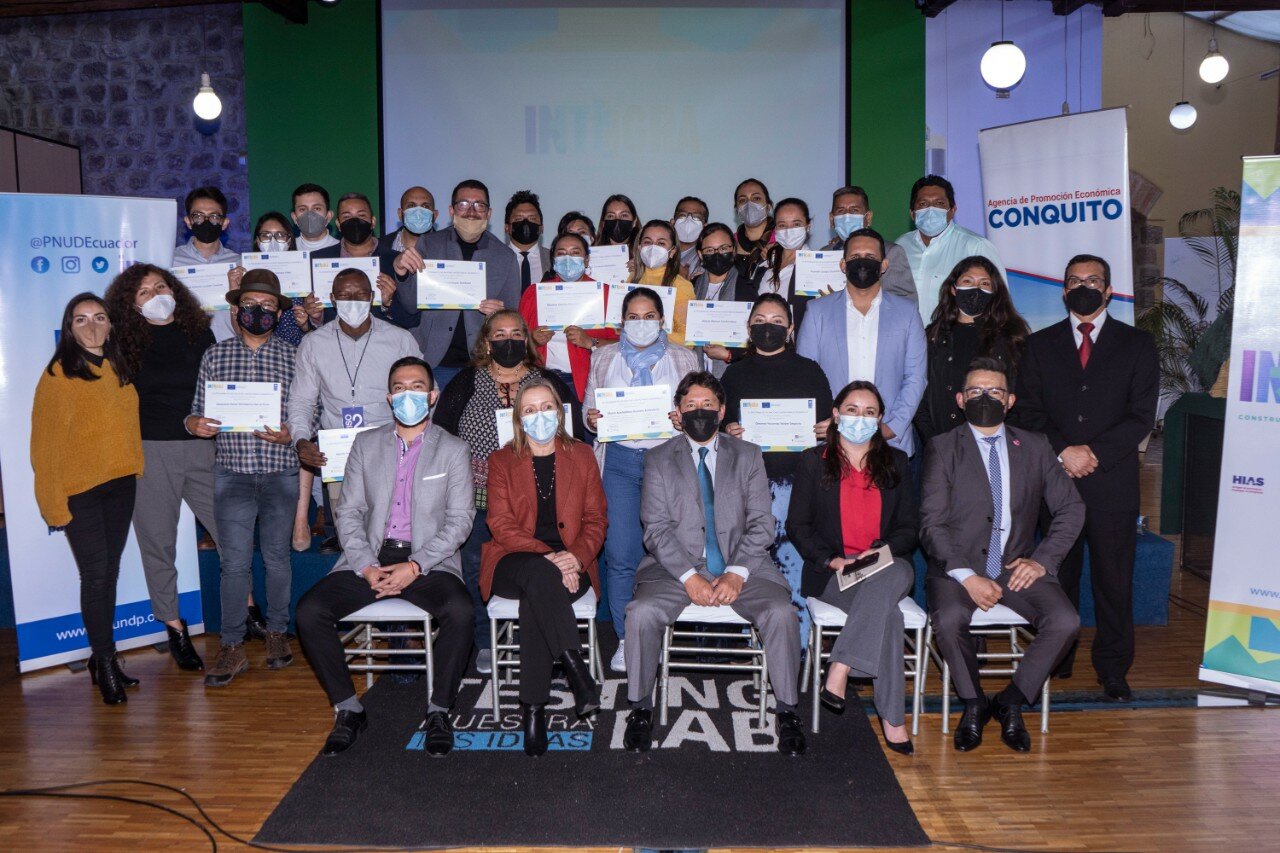9 municipalities seek to generate employability and entrepreneurship programs for people in human mobility and host populations in Ecuador
by UNDP Ecuador | Originally published on December 16, 2021
With the participation of 24 officials from the municipalities of Ambato, Durán, Guayaquil, Huaquillas, Latacunga, Machala, Milagro, Quito, and Santa Rosa, the program to strengthen capacities and transfer methodologies in employability and entrepreneurship culminated in a closing event. promoted from the Integra Program, financed by the European Union, and implemented by the United Nations Development Program (UNDP) and allies. The objective is to support the socio-economic integration of people in human mobility and host communities and the institutional strengthening of local governments. To date, 45 public officials from the 9 municipalities participated in the various training workshops.
On the other hand, and in a complementary way, 86 public servants were trained in processes of law, protection, human mobility, and a gender approach, as part of the construction of the awareness strategies of the participating municipalities.
These activities were developed between September and December of this year, under the leadership of UNDP, with a special emphasis on working with women, to contribute to their economic empowerment and make visible their contribution to the local economy.
Juan Carlos Castrillón, Undersecretary for Economic Affairs and International Cooperation of the Ministry of Foreign Affairs and Human Mobility, thanked the efforts made and highlighted the role of the Foreign Ministry as the coordinating body for non-reimbursable cooperation.
During his speech, the ambassador of the European Union in Ecuador, Charles-Michel Geurts, indicated that "through the INTEGRA Program, the EU supports the efforts of the Government of Ecuador in the process of socioeconomic integration of the population in a situation of human mobility. Similarly, this project has a nexus approach, that is, the transition from humanitarian action projects to humanitarian action projects to development cooperation projects. In this sense, we closely follow the implementation of this program due to its innovative nature. and the potential to work with the private sector in the coming years."
The UNDP representative in Ecuador, Matilde Mordt, highlighted the importance of this first stage of capacity building as a prelude to promoting economic reactivation and integration in 2022 that includes the Ecuadorian population and the population in human mobility.
As part of this initiative, in 2022 the institutionalization of employability services and entrepreneurship will be promoted to reach 3,000 people who can benefit from them. Similarly, 1,800 enterprises will be selected, 50% led by women, and will benefit from seed capital. In this way, it is expected to contribute to inclusive and sustainable economic integration and reactivation that has migration as an opportunity for development.
Enrique Crespo, director of the ConQuito Economic Promotion Agency, highlighted the importance of working together, in a network and sharing knowledge.
According to World Bank estimates, as of October 2021, Ecuador's economy will grow by 3% this year, a figure lower than the average for the region (6.3%). This requires deepening efforts in processes that continue to promote inclusive economic recovery, where they join local communities and those from other countries (BM 2021).
Article and image retrieved from https://www.ec.undp.org/content/ecuador/es/home/presscenter/articles/2021/9-municipios-buscan-generar-programas-de-empleabilidad-y-emprend.html
